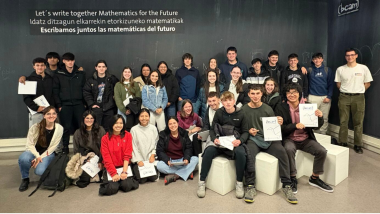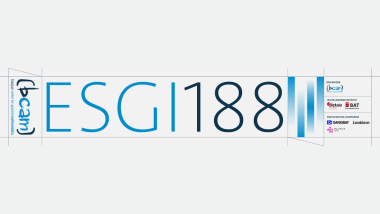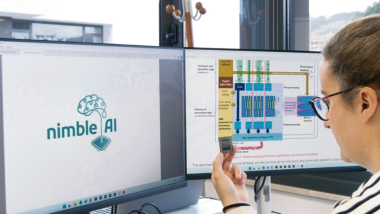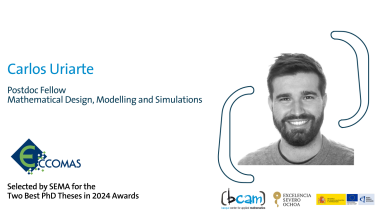Judit Muñoz will defend her doctoral thesis on Tuesday, October 1st
- The defense will take place in the Faculty of Science and Technology of the University of the Basque Country located in Leioa, at 12:00 pm
Judit Muñoz obtained a Bachelor’s degree in Mathematics in 2014 and a Master’s in Mathematical Modelling and Research, Statistics and Computing in 2015, both at the University of the Basque Country. During the summer of 2015 she was an intern within the Computational Mathematics group at BCAM, and since then she has been a frequent collaborator of the Simulation of Wave Propagation research line.
She started her PhD at the UPV/EHU in November 2015 and her thesis has been directed by Ikerbasque Research Professor David Pardo (BCAM-UPV/EHU) and by Dr. Elisabete Alberdi Celaya (UPV/EHU).
On behalf of all BCAM members, we would like to wish Judit the best of luck in her upcoming thesis defense.
Title: Explicit-in-time variational formulations for goal-oriented adaptivity
Goal-Oriented Adaptivity (GOA) is a powerful tool to accurately approximate physically relevant features of the solution of Partial Differential Equations (PDEs). It delivers optimal grids to solve challenging engineering problems. In time de- pendent problems, GOA requires to represent the error in the Quantity of Interest (QoI) as an integral over the whole space-time domain in order to reduce it via adaptive refinements. A full space-time variational formulation of the problem allows the aforementioned error representation. Thus, variational space- time formulations for PDEs have been of great interest in the last decades, among other things, because they allow to develop mesh-adaptive algorithms. Since it is known that implicit time marching schemes have variational structure, they are often employed for GOA in time-domain problems. When coming to explicit-in- time methods, these were introduced for Ordinary Differential Equations (ODEs) employing specific inexact quadrature rules. In this dissertation, we prove that the explicit Runge-Kutta (RK) methods can be expressed as discontinuous-in-time Petrov-Galerkin (dPG) methods for the linear advection-diffusion equation. We systematically build trial and test functions that, after exact integration in time, lead to one, two, and general stage explicit RK methods. This approach enables us to reproduce the existing time-domain goal-oriented adaptive algorithms using explicit methods in time. Here, we employ the lowest order dPG formulation that we propose to recover the For- ward Euler method and we derive an appropriate error representation. Then, we propose an explicit-in-time goal-oriented adaptive algorithm that performs local refinements in space. In terms of time domain adaptivity, we impose the Courant-Friedrichs-Lewy (CFL) condition to ensure the stability of the method. We provide some numerical results in one-dimensional (1D)+time for the diffusion and advection-diffusion equations to show the performance of the proposed algorithm. On the other hand, time-domain adaptive algorithms involve solving a dual pro- blem that runs backwards in time. This process is, in general, computationally expensive in terms of memory storage. In this work, we define a pseudo-dual problem that runs forwards in time. We also describe a forward-in-time adaptive algorithm that works for some specific problems. Although it is not possible to define a general dual problem running forwards in time that provides information about future states, we provide numerical evidence via one-dimensional problems in space to illustrate the efficiency of our algorithm as well as its limitations. As a complementary method, we propose a hybrid algorithm that employs the classical backward-in-time dual problem once and then performs the adaptive process forwards in time. We also generalize a novel error representation for goal-oriented adaptivity using (unconventional) pseudo-dual problems in the context of frequency-domain wave-propagation problems to the time-dependent wave equation. We show via 1D+time numerical results that the upper bounds for the new error representation are sharper than the classical ones. Therefore, this new error representation can be used to design more efficient goal-oriented adaptive methodologies. Finally, as classical Galerkin methods may lead to instabilities in advection-dominated-diffusion problems and therefore, inappropriate refinements, we propose a novel stabilized discretization method, which we call Isogeometric Residual Minimization (iGRM) with direction splitting. This method combines the benefits resulting from Isogeometric Analysis (IGA), residual minimization, and Alternating Direction Implicit (ADI) methods. We employ second order ADI time integrator schemes, B-spline basis functions in space and, at each time step, we solve a stabilized mixed method based on residual minimization. We show that the resulting system of linear equations has a Kronecker product structure, which results in a linear computational cost of the direct solver, even using implicit time integration schemes together with the stabilized mixed formulation. We test our method in 2D and 3D+time advection-diffusion problems. The derivation of a time-domain goal-oriented strategy based on iGRM will be considered in future works.
Related news
About the center
About the center




